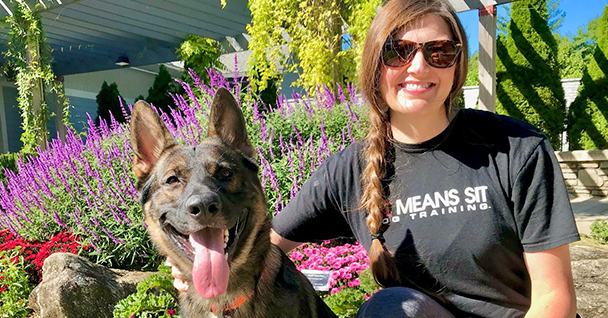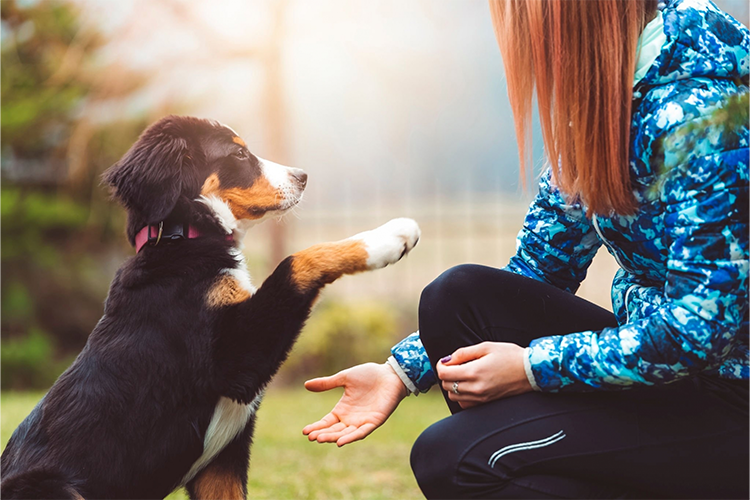Necessary Tips for Effective Dog Training: A Guide for Animal Owners
Efficient pet training is a diverse process that calls for a critical approach customized to both the family pet's character and the proprietor's goals. Key parts such as developing consistent commands, utilizing favorable reinforcement, and facilitating early socialization play crucial duties in fostering a well-adjusted canine friend. Nonetheless, numerous family pet proprietors run into difficulties that can impede progress, leading to frustration and uncertainty. Understanding exactly how to navigate these challenges can dramatically boost the training experience, eventually transforming the relationship between proprietor and dog. What are the essential techniques that can be utilized to guarantee success in this undertaking?
Understanding Canine Behavior
Comprehending canine behavior is necessary for reliable training and cultivating an unified connection between pooches and their proprietors. Canines communicate largely via body movement, articulations, and activities, making it vital for owners to interpret these signals properly. Acknowledging a pet's position, tail placement, and ear orientation can provide insights right into its emotion. For example, a wagging tail does not constantly suggest happiness; it can additionally signify exhilaration or stress and anxiety.

Socialization plays a considerable function in canine behavior; direct exposure to different environments, people, and various other animals can significantly influence a canine's temperament. Factors such as breed attributes and individual personality need to guide training techniques, as some types might have particular behavior traits that demand tailored methods. By recognizing these components, proprietors can create an encouraging environment that encourages positive actions, causing effective training outcomes and a much deeper bond with their pet dogs.
Developing Consistent Commands
Efficient communication with your pet begins with establishing constant commands. This fundamental component of training is critical for fostering understanding in between you and your pet. Uniformity in the commands you use guarantees that your dog can accurately associate specific words or phrases with the preferred actions.
When picking commands, choose clear, distinctive words that are very easy to claim and differentiate from each other. Avoid utilizing similar-sounding commands that might perplex your pet dog. As an example, using "rest" and "stay" is ideal, but "rest" and "hit" might lead to misunderstandings.
Furthermore, maintain the very same tone and volume for every command. Dogs are delicate to singing hints, so differing your tone can produce confusion.
It is equally crucial to ensure that all relative get on the exact same web page concerning the commands utilized. A united front in command usage will prevent mixed signals and reinforce the knowing procedure.
Positive Reinforcement Strategies
The power of favorable support in canine training depends on its capability to urge desired actions through benefits and appreciation. This technique is based in the principle that actions followed by beneficial outcomes are more probable to be duplicated. By incorporating favorable support right into your training program, you can successfully form your pet dog's habits in a constructive fashion.
To implement positive support, it's vital to determine what inspires your canine, whether it be deals with, playthings, or verbal praise. When your dog executes a wanted activity, such as sitting on command, quickly award them with a reward or love. This organization in between the command and the positive outcome enhances their understanding.
It's crucial to timing the rewards appropriately; supplying the reinforcement within seconds of the desired actions assists your canine make the link (dog training). Additionally, consistency is crucial-- make sure that all household members utilize the very same commands and incentive systems to prevent confusion

Progressively, you can lower the frequency of treats as your canine learns the behavior, Discover More Here transitioning to commend or recurring rewards. This approach not only promotes a strong bond in between you and your pet yet also advertises a favorable understanding atmosphere, making educating an enjoyable experience for both.
Socialization and Communication
Continually subjecting your pet to a range of settings, people, and other animals is important for their social advancement. Socializing needs to begin early, preferably throughout the essential window of 3 to 14 weeks, when young puppies are most responsive to brand-new experiences. Nonetheless, older dogs can additionally gain from recurring socialization efforts.
Introduce your dog to various settings, such as parks, pet-friendly stores, and urban areas. This direct exposure helps them adjust to numerous stimuli, minimizing stress and anxiety and concern responses. Urge favorable interactions with various other pets and people, ensuring that these encounters are regulated and secure to promote confidence.
Use structured playdates with genteel canines, as this can enhance your dog's social abilities and instruct them ideal behavior. Obedience classes and training sessions likewise supply exceptional possibilities for socializing, enabling your pet to interact with others in a monitored environment.
Screen your canine's body movement during interactions, as this will assist you gauge their convenience degree. Slowly raise exposure to even more tough scenarios while making certain that each experience declares. A well-socialized pet is more probable to show balanced actions, making them a happiness to have in any kind of setup.
Attending To Usual Training Difficulties
Every pet dog owner will experience training obstacles at some time, no matter their pet's age or socialization degree. Recognizing common concerns such as stubbornness, diversions, and fearfulness can aid in establishing efficient methods for enhancement.

Distractions throughout training sessions can derail emphasis. To battle this, start training in a quiet environment with marginal stimulations. Gradually present interruptions as the canine becomes more proficient in commands. Short, regular training sessions are also effective in preserving attention.
Terror can prevent a pet's learning procedure. Gradual desensitization to the resource of anxiety, paired with positive reinforcement, can assist minimize anxiety. Persistence is essential; never force a canine right into a situation that triggers distress, as this may aggravate the problem.
Inevitably, understanding and resolving these common challenges with a structured technique will certainly cultivate a more effective training experience, strengthening the bond in between dog and owner while promoting efficient learning.
Conclusion
In summary, effective dog training depends on a detailed understanding of canine actions, go to my blog the facility of constant commands, and the application of favorable reinforcement strategies. Socializing plays a critical role in creating well-adjusted animals, while dealing with common training difficulties calls for persistence and versatility. By carrying out these essential approaches, pet proprietors can promote a solid bond with their dogs and promote desirable behaviors, ultimately bring about a harmonious connection in between people and their canine friends.
Understanding canine actions is necessary for effective training and promoting an unified partnership in between pooches and their proprietors.Socializing plays a significant duty in pet dog habits; exposure to various settings, individuals, and various other animals can considerably affect a dog's personality.The power of favorable support in dog training exists in its capacity to encourage preferred habits via incentives and appreciation. By including positive support right into your training regimen, you can effectively form your pet dog's actions in a positive way.
In recap, successful dog training relies on a thorough understanding of canine habits, the facility of regular commands, and the application of positive support techniques.